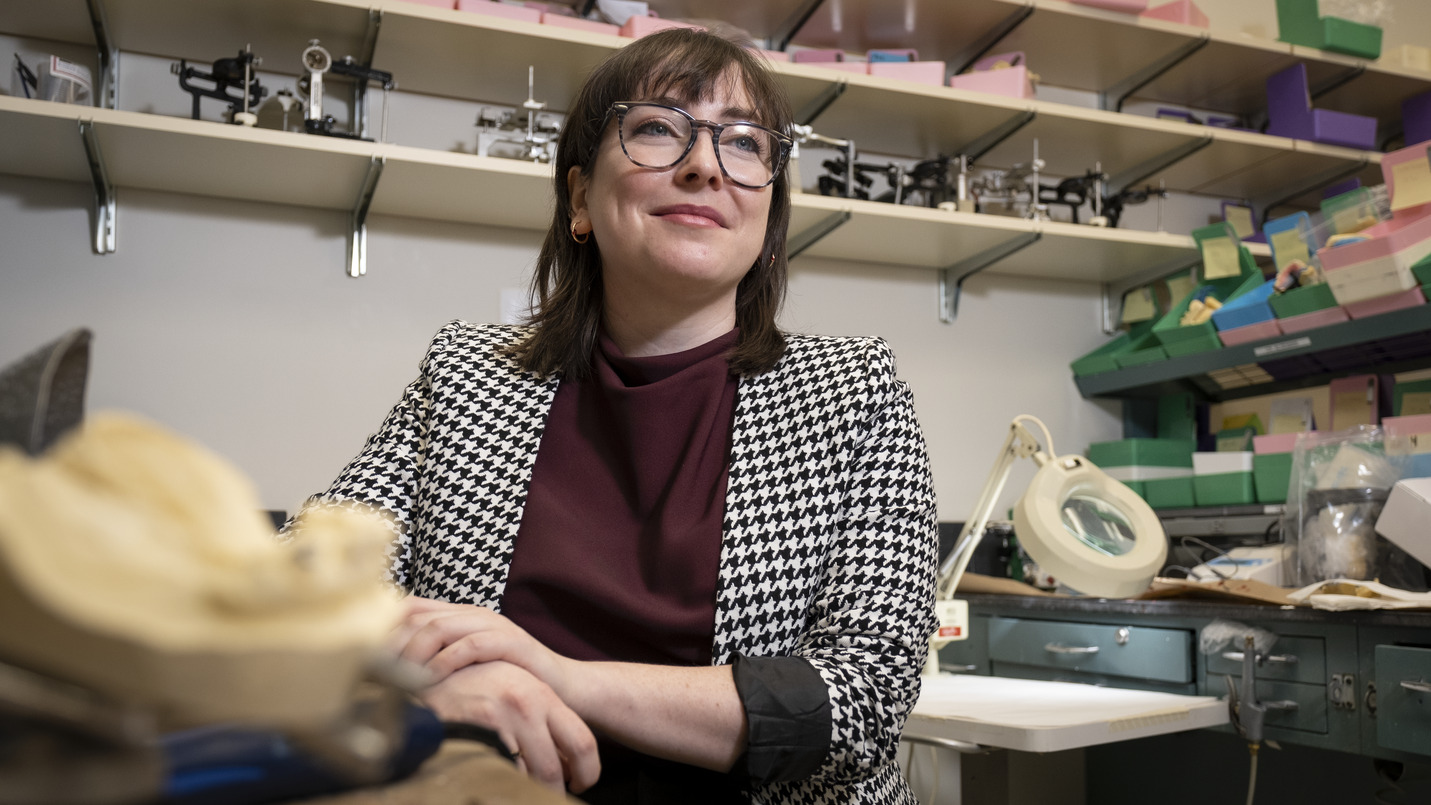Using cutting-edge technology to design lifelike prosthetics, crafting user-friendly digital experiences and programming complex machinery—these might sound like the tasks of engineers or business school graduates. But, in fact, they are the work of artists—graduates of Temple University’s Tyler School of Art and Architecture.
Many art students, like Erin Lees, TYL ’23, view their Tyler education as a passport to a career combining art with science, technology, engineering or medicine. Lees dreamed of a career in medicine where she could apply her painting and 3D-printing skills. Today, she does exactly that. As an anaplastologist at Columbia University, Lees creates prosthetics for the ears, eyes and other parts of the face.
She is just one example of the art school-to-STEM career pipeline that runs strong at Tyler. Two Tyler programs, metals/jewelry/CAD-CAM (MJCC) and design and illustration (D&I), are classified as STEM programs under guidelines from the Department of Education and Department of Homeland Security. The classification highlights not only the STEM competencies included in their curriculums but also their success in producing graduates ready for STEM careers.
Meet a few alumni from these programs who have found a home in STEM fields.
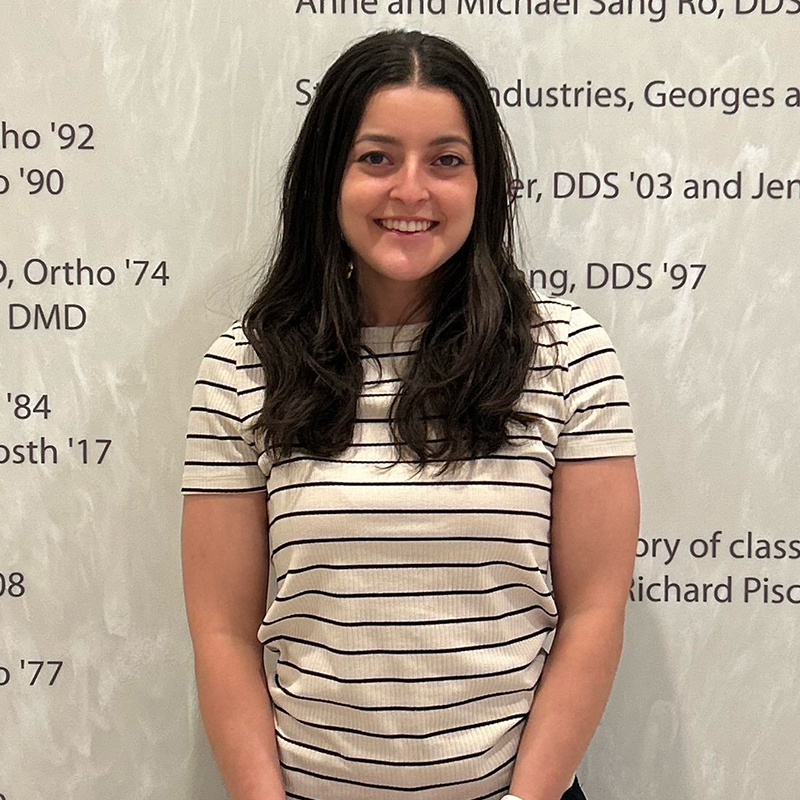
Erin Lees, BFA, metals/jewelry/CAD-CAM, 2023
Junior digital dentistry technician and anaplastologist, Columbia University Dental School, Columbia University Irving Medical Center
As a junior digital dentistry technician and anaplastologist, Erin Lees designs and fabricates intraoral and extraoral prosthetics (prosthetics located both inside and outside of the mouth). These prosthetics include ears, eyes, noses, dentures and dental crowns, and each device requires a different workflow. Some require plaster molds and wax-ups, which are later painted with silicone. Others, like ear prosthetics and dental crowns, require 3D printing.
How Tyler prepared her for a STEM career
“My dream was always to combine painting and 3D design into a medical profession. If not for the MJCC program I would not know how to make prosthetics or do the kinds of mold-making that are a crucial part of the work I do today. At Tyler, I gained the knowledge and skills necessary to problem-solve 3D objects. I also learned how to look at life through an artist’s eye. I am grateful for Professor Mallory Weston and program head Doug Bucci for always encouraging me to think beyond the standard box.”
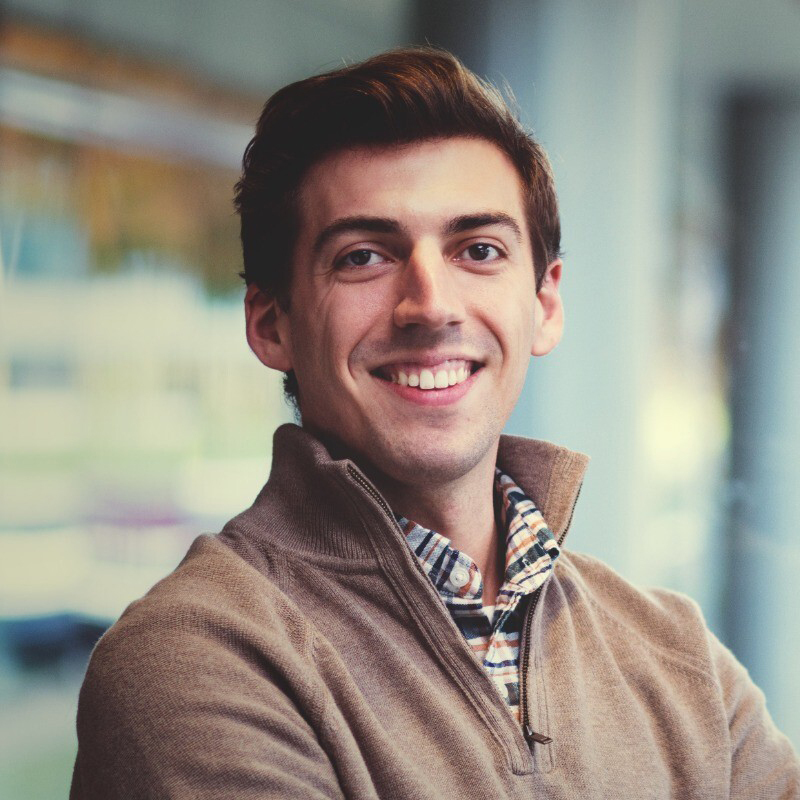
Nick Olshefski, BFA, graphic and interactive design, 2019
Senior user experience designer, Vanguard
As a UX designer, Nick Olshefski is responsible for creating websites and apps that are accessible, intuitive and user-friendly. To ensure that Vanguard’s products align with both its user needs and business goals, Olshefski creates basic sketches and early models of websites and apps, conducts usability testing, and works closely with cross-functional teams to assist in research and support engineers in the development of the products. He also works to ensure that Vanguard designs utilize existing components and patterns and implement the established rules that are laid out in its design system.
How Tyler prepared him for a STEM career
“My experience within the GAID program during my time at Tyler was critical in preparing me for the work that I do. It not only provided me with a strong understanding of visual design principles and how to apply them to digital experiences, but Tyler’s diverse culture and inclusive community also helped emphasize the importance of designing for all types of users inclusive of gender, age, race, disability, etc.”
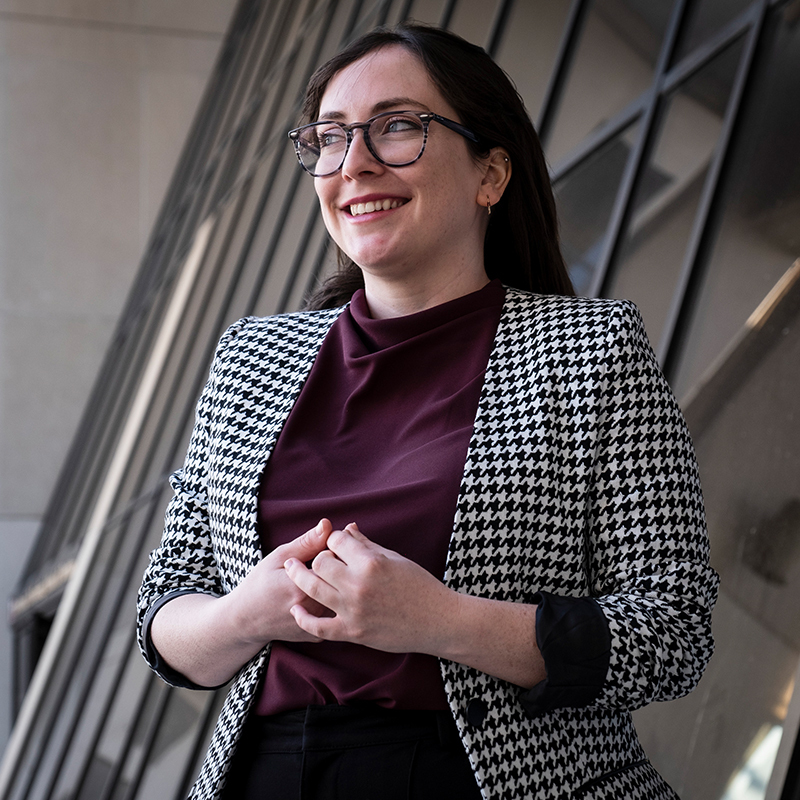
Ellen Sisti, MFA, metals/jewelry/CAD-CAM, 2021
Computer numerical control (CNC) programmer and operator, Loubier Design
Loubier Design is a design, build and millwork studio located in Philadelphia. As a CNC programmer and operator there, Ellen Sisti makes custom cabinetry and furniture with CNC machines, which use automation to control tools like drills, mills and grinders. She uses computer-aided design (CAD) to design the furniture and layout files to be cut using the CNC. She also writes computer programs for the cuts, which requires selecting the correct drill bit, rotations-per-minute and cut path to ensure that the CNC runs as smoothly and effectively as possible.
Before she got to Loubier, Sisti spent three years applying her CAD skills to help establish a first-of-its-kind digital dental lab at Temple’s Kornberg School of Dentistry, in partnership with the Golden Ceramic Lab.
How Tyler prepared her for a STEM career
“Through Tyler’s interdisciplinary educational approach, I was able to find many different avenues to utilize the technology that I find so fascinating. It also allowed me to feel comfortable inhabiting many different spaces and working with many different types of people. This has allowed for me to carve out a unique niche for myself as not only an artist, but also a leader within STEM.”
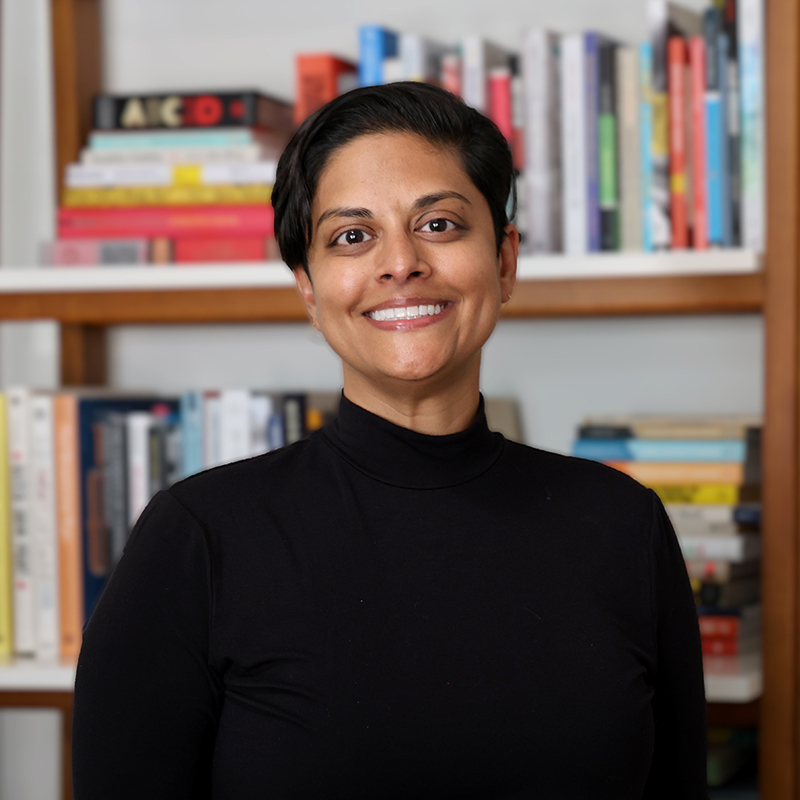
Neha Agarwal, MFA, graphic and interactive design, 2006
Manager, design, Think Company
Think Company is a consultancy that specializes in digital product design and service design, and their clients come from industries including healthcare, finance and telecommunications. As a manager, Neha Agarwal’s work encompasses leadership of people, culture, recruiting and hiring. She manages a team of eight to 12 designers and ensures they have the coaching and support needed to succeed in their various client projects. She leads the company’s internal training program, which helps team members develop and grow their skills. She also serves as a senior advisor on client projects providing guidance, information and connections as needed.
How Tyler prepared her for a STEM career
“I graduated from Tyler’s MFA program the year before the first iPhone debuted, right when our relationship with digital technology started to shift rapidly. No one knew what was ahead, but Tyler taught me foundations I still lean on in my design career. I learned to use research to really understand an audience and their context. I learned how to visually distill lots of information and complexity. I learned the importance of continuous feedback, critique and discourse. I learned to explore different mediums and applications to identify their opportunities and limitations. And I learned to embrace design exploration and hands-on prototyping in order to problem-solve and push my creativity. These are timeless fundamentals that underpin design in the tech industry today.”

